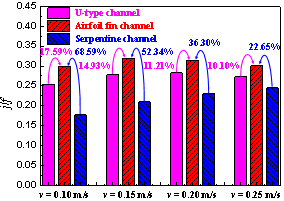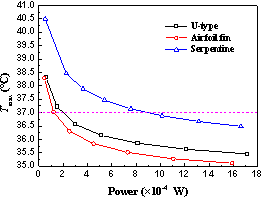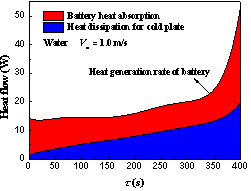Dr. Wang Libiao has recently published two research papers in Energy, a top journal of the Chinese Academy of Sciences with an impact factor of 9.0. The papers are titled “Effects of the Cold Plate with Airfoil Fins on the Cooling Performance Enhancement of the Prismatic LiFePO4 Battery Pack” and “Effects of Supercritical Carbon Dioxide Cooling on Heat Dissipation Performance Enhancement of a Prismatic LiFePO4 Battery Pack(online)” respectively. Dr. Wang is the first author of both papers, and Taizhou University is the first corresponding institution.
In response to the limitations of traditional liquid cooling technology for lithium-ion batteries, a novel liquid cooling plate structure has been proposed in Dr. Wang’s research. His work innovatively applies supercritical carbon dioxide (sCO2) to the battery thermal management system, aiming to significantly improve the thermal performance of lithium-ion battery packs and provide a theoretical foundation and technical support for the development of highly efficient battery thermal management systems.
Dr. Wang’s first paper introduced a new wing-shaped channel cold plate structure, building upon the traditional liquid cooling plate design. It compared and analyzed the thermal management performance of lithium-ion battery systems using the wing-shaped channel cold plate, traditional U-shaped cold plate, and serpentine channel cold plate. The paper explored the role of the wing-shaped design in enhancing the thermal and hydraulic performance of liquid cooling plates.


His second paper addressed the issues of high flow resistance and low single-phase convective heat transfer coefficient in traditional liquid coolants (such as water) used in liquid cooling microchannels. It introduced for the first time supercritical carbon dioxide into the thermal management system for lithium-ion batteries. The study found that sCO2-based thermal management systems can significantly enhance the heat dissipation performance of battery packs while effectively reducing the power consumption of the cooling system.


Both studies have received support from the Taizhou Special Talent Support Program, the Taizhou University Young Talent Program, and other initiatives. Currently, Dr. Wang’s research team is applying their findings in the products of magnetic levitation variable-frequency (heat pump) units for Taizhou air compressor companies through the university-local government cooperation platform of Wenling Research Institute, thus contributing to the high-quality development of manufacturing enterprises in Taizhou.
Link to the first paper: https://doi.org/10.1016/j.energy.2024.131210
Link to the second paper: https://doi.org/10.1016/j.energy.2024.134187